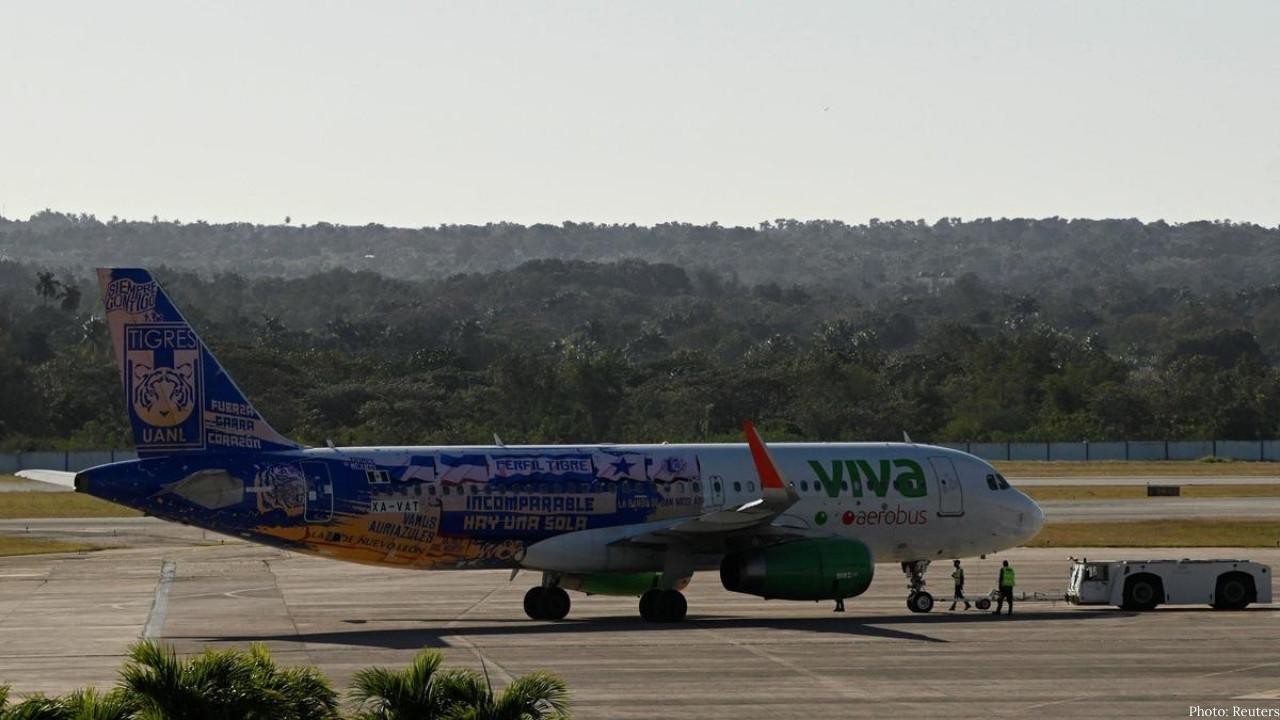You have not yet added any article to your bookmarks!

Join 10k+ people to get notified about new posts, news and tips.
Do not worry we don't spam!

Post by : Anis Farhan
In the last few years, the global travel landscape has transformed dramatically. Gone are the days when travelers flocked to the same crowded cities and postcard landmarks. Today, a new wave of wanderers is redefining tourism—seeking quiet villages, remote islands, and lesser-known cultural experiences. The concept of off-the-beaten-path travel is not just a trend; it’s becoming a movement centered around sustainability, authenticity, and self-discovery.
Fueled by social media fatigue and overtourism in famous hotspots, travelers are finding joy in destinations untouched by mass crowds. From the tranquil rice terraces of northern Vietnam to the secluded beaches of Oman, the world’s hidden corners are taking center stage.
Overtourism has been one of the biggest challenges of the modern travel industry. Cities like Venice, Bali, and Barcelona have faced overcrowding, putting immense pressure on local infrastructure and natural resources. This has driven eco-conscious travelers to explore beyond the mainstream.
The pandemic also played a vital role in this transformation. Lockdowns gave people time to reassess how they travel. They began seeking meaningful experiences instead of rushed itineraries. Today’s travelers crave calm, safety, and connection—values best found in offbeat destinations that preserve authenticity.
The new travel mantra? Fewer crowds, richer memories.
Off-the-beaten-path destinations promise something that mainstream tourism rarely offers: surprise. Whether it’s hiking through unmarked trails in the Himalayas or sharing tea with a Berber family in the Atlas Mountains, these experiences create lasting emotional connections.
Travelers are also rediscovering the thrill of exploration itself. In a world mapped by GPS and tagged by influencers, finding a place unfiltered by social media is the ultimate adventure. The growing popularity of “slow travel”—spending extended time in one location—has only fueled this passion.
Interestingly, social media both fuels and undermines this movement. While platforms like Instagram and TikTok inspire curiosity about remote destinations, viral posts can quickly draw crowds and disrupt the very serenity travelers seek.
To counter this, experienced travelers and content creators have started a new trend called “destination discretion”—sharing experiences without revealing exact locations. This preserves the mystique while encouraging responsible tourism.
In essence, social media is becoming a double-edged compass: one that guides exploration but requires mindfulness.
At its heart, the offbeat travel trend is rooted in sustainability. Lesser-known destinations often rely on tourism as a lifeline but lack the infrastructure to handle mass tourism. By spreading tourist footfall, travelers help reduce environmental impact on overcrowded regions while uplifting under-visited communities.
Eco-lodges, farm stays, and community-based tourism projects are thriving across Africa, Southeast Asia, and Latin America. For example, in rural parts of Laos and Ecuador, travelers can live with locals, learn traditional crafts, and directly contribute to village economies. Such interactions foster empathy and awareness, making tourism a force for good rather than exploitation.
The world is full of incredible destinations waiting to be discovered. Here are some under-explored regions now capturing global attention:
Albania’s Riviera: A stunning alternative to Greece or Croatia, with crystal-clear waters and ancient hill towns.
Raja Ampat, Indonesia: A pristine marine paradise ideal for divers seeking untouched coral reefs.
The Alentejo, Portugal: A slow-paced region offering vineyards, medieval villages, and unspoiled coastlines.
Bhutan: Focused on “high-value, low-impact” tourism, this Himalayan kingdom offers serene monasteries and hiking trails.
Jordan’s Dana Biosphere Reserve: A perfect mix of desert landscapes, wildlife, and eco-lodges.
Each of these destinations captures the essence of offbeat travel—beauty, culture, and minimal crowds.
Ironically, technology is what makes exploration of hidden destinations more accessible than ever. Digital maps, travel forums, and translation apps empower travelers to navigate remote areas confidently. AI-powered platforms even recommend less-visited regions based on individual travel styles and environmental impact.
Virtual reality previews, while once seen as distractions, are helping travelers prepare better and choose destinations responsibly. The balance between technology and adventure is creating a new type of digital nomad—one driven by curiosity, not connectivity.
Another phenomenon gaining traction is micro-tourism—the practice of exploring lesser-known regions within one’s own country. Economic uncertainty and ecological concerns have encouraged local travel that reduces carbon footprints.
In India, for instance, travelers are skipping Goa for Gokarna, or Rishikesh for the unexplored valley of Tirthan. In Europe, smaller towns in Italy and France are seeing an influx of visitors looking to escape city bustle while enjoying local charm.
This movement not only supports local economies but also redistributes tourism revenue more evenly across regions.
Travel companies are quickly catching on. Airlines are adding routes to secondary cities, while boutique hotels are emerging in previously overlooked towns. Travel agencies are promoting “mystery itineraries,” where travelers book trips without knowing the destination—fostering surprise and exploration.
Sustainability certifications, like Green Globe and EarthCheck, are now major selling points. Adventure companies are offering immersive, small-group tours focusing on cultural exchange rather than commercial sightseeing. Even major players like Airbnb are spotlighting rural stays and heritage experiences.
While exploring offbeat destinations, travelers carry a great responsibility—to respect local traditions, privacy, and the environment. Cultural sensitivity is essential when visiting indigenous or isolated communities.
Simple acts—like learning basic phrases in the local language, dressing modestly, or supporting community-run homestays—create positive cross-cultural bridges. Responsible travel ensures that tourism benefits both visitor and host, preserving the authenticity that makes these destinations special.
Modern explorers are not just chasing thrills; they’re seeking balance. Offbeat travel experiences increasingly blend adventure with wellness—mountain yoga retreats, desert meditation camps, and forest bathing sessions are becoming popular.
This form of travel satisfies the yearning for both adrenaline and peace. It allows travelers to reconnect with nature, disconnect from digital overload, and rediscover purpose. The shift from consumption to contemplation is reshaping tourism philosophy worldwide.
Psychologists note that venturing into unfamiliar environments boosts creativity, empathy, and emotional well-being. Offbeat travel challenges comfort zones and encourages adaptability. It also provides a sense of achievement—discovering a place few have experienced before brings fulfillment in a way no souvenir can.
For many, the journey itself becomes a metaphor for life: uncertain, unpredictable, but deeply rewarding.
Offbeat travel has significant economic implications. When visitors explore beyond major cities, they help diversify income sources. Small businesses—local guides, artisans, and family-run cafes—benefit directly from this decentralized tourism model.
In countries like Nepal and Morocco, rural tourism has become a tool for women’s empowerment, providing employment in regions where opportunities were scarce. Governments are beginning to invest in rural infrastructure to support this emerging economy, ensuring tourism growth remains inclusive.
The future of travel is personal, purposeful, and planet-friendly. As sustainability becomes a global priority, under-explored destinations will play a vital role in distributing tourist activity.
AI and data analytics will continue to identify travel patterns, helping authorities manage crowd control and protect fragile ecosystems. Eco-policies and regenerative tourism—where travelers actively contribute to the places they visit—will redefine what responsible travel means.
Ultimately, the rise of offbeat travel represents a return to the essence of exploration: curiosity without exploitation.
Off-the-beaten-path travel is more than just a trend; it’s a cultural shift. It celebrates authenticity, nurtures sustainability, and restores balance to a world overwhelmed by mass tourism.
In every hidden valley, quiet beach, or uncharted forest, there lies an opportunity—to connect deeply, live mindfully, and see the planet with fresh eyes. The next great journey may not take you across the world, but beyond what’s familiar.
The future of travel, it seems, belongs not to those who follow the map—but to those who draw new ones.
This article is intended for informational and editorial purposes only. It does not promote or endorse specific travel companies or destinations. Readers are encouraged to practice responsible, respectful, and sustainable tourism wherever they go.










Study Warns Using AI for Medical Advice Is ‘Dangerous’ as Users Get Inaccurate Health Guidance
A major new study reveals that artificial intelligence (AI) chatbots and tools may give misleading o

Top Sci-Fi Movies Streaming on Netflix This February: Must-Watch Picks for Genre Fans
A curated news-style guide to the best science fiction films currently available on Netflix in Febru

BCCI Central Contracts Shake-Up: Kohli, Rohit Moved to Grade B as Board Reshapes 2025–26 List
Virat Kohli and Rohit Sharma have been placed in Grade B in the BCCI’s 2025–26 central contract list

Dalal Street Spotlight: Top 10 Stocks Investors Are Watching as Markets Open on a High
Indian stock markets begin the week with strong momentum, and several blue-chip and mid-cap stocks a

Market Movers Today: Key Stocks Set To Watch In Indian Markets
Indian equity markets are poised for active trading as several major companies, including Bharti Air

Milan Welcomes the World: Inside the Grand Opening Ceremony of the 2026 Winter Olympics
The 2026 Winter Olympics opening ceremony in Milan marked a defining moment for global sport, blendi